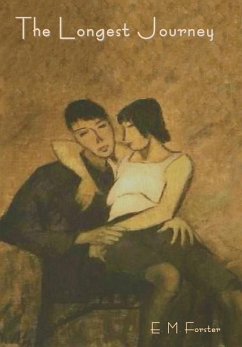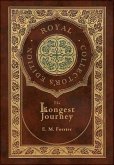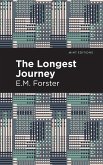The Longest Journey is a bildungsroman by E. M. Forster, first published in 1907. It is the second of Forster's six published novels, following Where Angels Fear to Tread (1905) and preceding A Room with a View (1908) and Howards End (1910). It was Forster's favourite among his own novels. Forster mapped out a loose plot in July 1904 after meeting a shepherd boy whilst walking in Wiltshire. He spent the first half of 1906 working on the novel. Returning to Weybridge from abroad in October 1906, Forster worked to complete it. Critically The Longest Journey is the most polarizing of Forster's novels. The novel was well-reviewed but had disappointing sales when first released; it is most often viewed as a minor work compared to Forster's later novels. However, even in Forster's lifetime there was reassessment of the novel's quality, with literary critic Lionel Trilling calling it "...perhaps the most brilliant, the most dramatic, and the most passionate of his works." According to Margaret Drabble both the structure and the uncharacteristically high death count which occurs later in the book confuse fans of Forster's. Gilbert Adair wrote that the greatest weaknesses for readers is its "unrelenting intellectuality, its sublimation and even outright repression of the importance of the erotic in human relationships" and the "...not always intentional priggishness of its characters", which he saw as constituting a poignant quality. (wikipedia.org)
Hinweis: Dieser Artikel kann nur an eine deutsche Lieferadresse ausgeliefert werden.
Hinweis: Dieser Artikel kann nur an eine deutsche Lieferadresse ausgeliefert werden.








